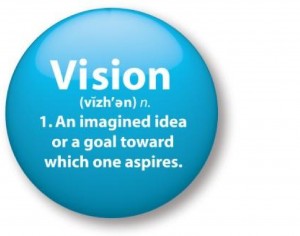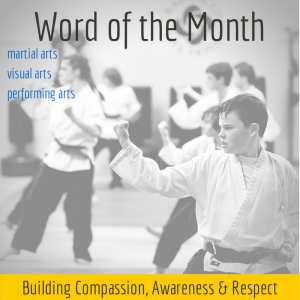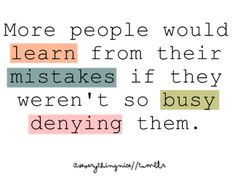Action with Vision is what achieves goals
 Three quotes from leaders in success or successful leaders:
Three quotes from leaders in success or successful leaders:
“Do it and then you will feel motivated to do it.” Zig Ziglar
“The secret of getting ahead is getting started.” Mark Twain
“I never worry about action, but only about inaction.” Winston Churchill
The question comes to mind, If you had 10 individuals in a competition, lets say a 5K, and all of them spent time visualizing winning the race, what would be the results? They all had a vision of winning, they could SEE it – crossing the finish line, others close behind. They could SENSE it – they feel the muscles, sweat and joy of crossing the line first. They could hear the crowd cheering for them. They repeatedly SAY to themselves – I am a winner!, I am fast!, I am ready. They BELIEVE they will will the race. The question is if all 10 of them did this visioning – which one will ACHIEVE there goal?
The answer is not just about visualizing – the answer is ACTION. The one who will win the race is the one who prepared with ACTION the best – they will be the winner. While the positive mental attitude was important, in the words of Joel Barker:
“Vision without action is a dream. Action without vision is simply passing the time. Action with Vision is making a positive difference.”
Vision – imagining your goals as real
 It is the end of one year and the beginning of a new year. It is this time of year that most of us look at what we have done in the past and what we would like to do in the future. Then we make resolutions “New Year Resolutions”, that many times last about a week or 2 or 3 and soon are forgotten. So, is it bad then to even make a resolution at all? Is there another way of reaching goals that we would like to reach?
It is the end of one year and the beginning of a new year. It is this time of year that most of us look at what we have done in the past and what we would like to do in the future. Then we make resolutions “New Year Resolutions”, that many times last about a week or 2 or 3 and soon are forgotten. So, is it bad then to even make a resolution at all? Is there another way of reaching goals that we would like to reach?
One of the best parts of making a resolution is we do stop and think about what we are doing, have done or would like to do. We are becoming more mindful at that moment. Most of us can fill in the blank, “I would like to ________ this year.” This month we are talking to our students about using our ability to envision themselves reaching their goals. This is another way of helping us to reach our goals.
A writer once said that, “Vision is the promise of what you will one day be.” Even our youngest students are able to take this step. It may be they have a vision of being able to ride a bike, tie their shoes, swim, or master another skill or task. No matter what it is that you want to be able to do, it is important to be able to see yourself doing it. It is also important to write it down and talk about it to others.
We have other senses to that come into play. So no matter your goal, imagine in your mind accomplishing your goal. See it, feel, smell, hear what it would be like to accomplish your goal. What will all of your friends and relatives feel and see when you reach your goal? Make it real in your vision and mind and you are able to accomplish it.
“See it. Sense it. Say it. Believe it. Achieve it.”
What is one thing that you would like to achieve this year? Tell us what you are resolved to do this year.
Life Skills: Vision – The Definition
 Each month we will discuss a life skill with all of our students. This month the word is Vision. This word will be defined in the following ways for our students.
Each month we will discuss a life skill with all of our students. This month the word is Vision. This word will be defined in the following ways for our students.
Young students: Vision means: I can see what I want to be (in my imagination)
Older students: Vision means: To clearly imagine my goals as if I’ve already achieved them.
Each age group has a worksheet that parents can use to continue the discussion at home with their children, and one for adults to allow them to think more deeply about the skill and how it applies to them. Would you like to receive the worksheet? Stop by our studio at 133 Gibralter Avenue in Annapolis, MD and tell us the age of your child. We will give you a worksheet and invite you to watch Mr. Joe discuss the word with the students in class. You can also follow our discussions here on this website.
If you would like to become a member of Balanced Life Skills, come TRY CLASSES FOR FREE. We are not your typical after school activity, in fact we are an education center, working with our students on physical skills along with empowering families with compassion, awareness and respect – creating a culture of peace – through the arts. We believe in every child and build their self – confidence. Balanced Life Skills takes part in community service and encourages each student to do the same.
Rules for having a fair argument
 While we may not shout – “That’s not fair.” – when in the midst of an argument, it is likely that we have thought it when the other party says or does something that triggers a reaction in us that has nothing to do with the discussion at hand.
While we may not shout – “That’s not fair.” – when in the midst of an argument, it is likely that we have thought it when the other party says or does something that triggers a reaction in us that has nothing to do with the discussion at hand.
Don’t you think there should be some rules for arguing that everyone agrees to? For some people arguing is fun, maybe you have met that person, or you live with them. In simple terms this is someone that we call the “Difficult Person”. They are never able to hear a request or be told anything without asking Why or why me or whats in it for me. They many times are disagreeable and will do so for the sake of disagreeing. Here are just a couple of thoughts about keeping the fight fair.
- Stick to the subject at hand – do not bring in the past, or unrelated issues
- Be respectful and courteous without the use of profanity or violent gestures – the use of profanity to drive points home demonstrates a frustration of feeling not heard. Violent gestures are the precursor to real violence – on the person or on physical property, neither of which will win the argument.
- Limit the number of rounds to 5. More than that demonstrates that both parties are having a difficult time hearing the other person, or simply unwilling to compromise. After 5 rounds it is time to take a break, agree to take it up at a later time.
- Agree to allow either person to call for a break, before hurtful things are said.
There are more possible rules, but this is a good start. Do you have any rules you use, especially with family members? Like us on Facebook and make a comment there with your thoughts.
Fairness when mistakes are made
 While all of us make mistakes – all of us have the opportunity when we do make a mistake to deal with our mistake in a fair way. Our initial reaction to making a mistake might be to be worried about getting in trouble. At Balanced Life Skills we do not worry about getting in trouble. We want to do the right thing – because it is the right thing to do.
While all of us make mistakes – all of us have the opportunity when we do make a mistake to deal with our mistake in a fair way. Our initial reaction to making a mistake might be to be worried about getting in trouble. At Balanced Life Skills we do not worry about getting in trouble. We want to do the right thing – because it is the right thing to do.
So when we make a mistake we are willing to take the responsibility for the mistake. It would not be fair to lie about what really happen or what we may have done wrong. Worse than that would be to put the blame on others. How unfair to blame another person for the mistake that we have made. Very close to blaming others would be to make an excuse as to why we did what we did. Either way we are refusing to take the responsibility.
Our reaction when making a mistake will always be to take the 3 step process, no matter if it is a drink that we spilled or if we said words that hurt the feelings of others. Here is the process that we teach at Balanced Life Skills:
- Admit we made the mistake. Recognize exactly what we did that was wrong.
- Apologize in the correct way, by saying, “I am sorry”. We will not use a flippant “sorry”.
- Fix it. We will do everything we can to make the wrong right, and hope for forgiveness.
Reminding our students of these steps will help them to exercise ‘fairness’ in all that they think, say and do.
